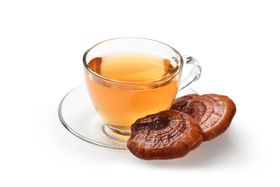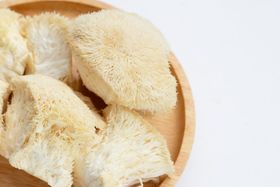Do Reishi Mushrooms Help With Allergies?
Reishi mushrooms seem to promise a wide range of benefits, but can they help reduce the symptoms of immune responses to allergies as well?
Updated April 7, 2023.
When our bodies come into contact with an invading pathogen, our immune systems kick into action to kill whatever is causing distress. In the case of an allergic response, our immune systems mistake a normally non-invasive and non-threatening substance (typically pollen, dust, etc.) as dangerous. When we come into contact with any of these, our bodies release a variety of chemicals in order to protect us, though some of these substances can be more annoying than beneficial.
» Find the perfect mushroom blend for your condition - take free quiz
Histamine Causes Allergy Symptoms
We all have a type of cell called a mast cell - short for mastocyte. During immune responses, these mast cells secrete several substances such as cytokines, growth factors, and histamines.
Histamine causes inflammation and is the reason for the common symptoms of allergies, which include the following:
- Sneezing
- Itching
- Blocked or runny nose
- Chest tightness
- Swollen lips, eyes, tongue, or face
- Itchy and watery eyes
Are Reishi Mushrooms Anti-Allergenic?
Though it might seem surprising, there is evidence to suggest that Reishi mushrooms have the capability to reduce the effects of allergies in multiple ways.
These benefits are as follows:
- Reishi mushrooms possess immunomodulating properties that can normalise a poorly functioning immune system. This alone may regulate the response against non-threatening substances.
- Reishi mushrooms can inhibit the release of inflammatory cytokines, reducing the symptoms of an allergic reaction.
- Reishi mushrooms exhibit a direct antihistamine effect.
A Final Thought
Allergies are common in individuals who suffer from autoimmune disorders. Currently, there is much debate surrounding the safety of Reishi mushrooms when taken with autoimmune disorders like rheumatoid arthritis and Lupus. Researchers are unsure whether the effects on the immune system are modulatory, meaning that they could benefit an autoimmune disorder by calming an overactive immune system, or stimulatory, which could aggravate an autoimmune disorder even more.
More research is needed, and so you should exercise caution when using Reishi mushrooms if you suffer from an autoimmune disorder. Consult your doctor to be on the safe side.
Related Posts
Samuel Njoroge







